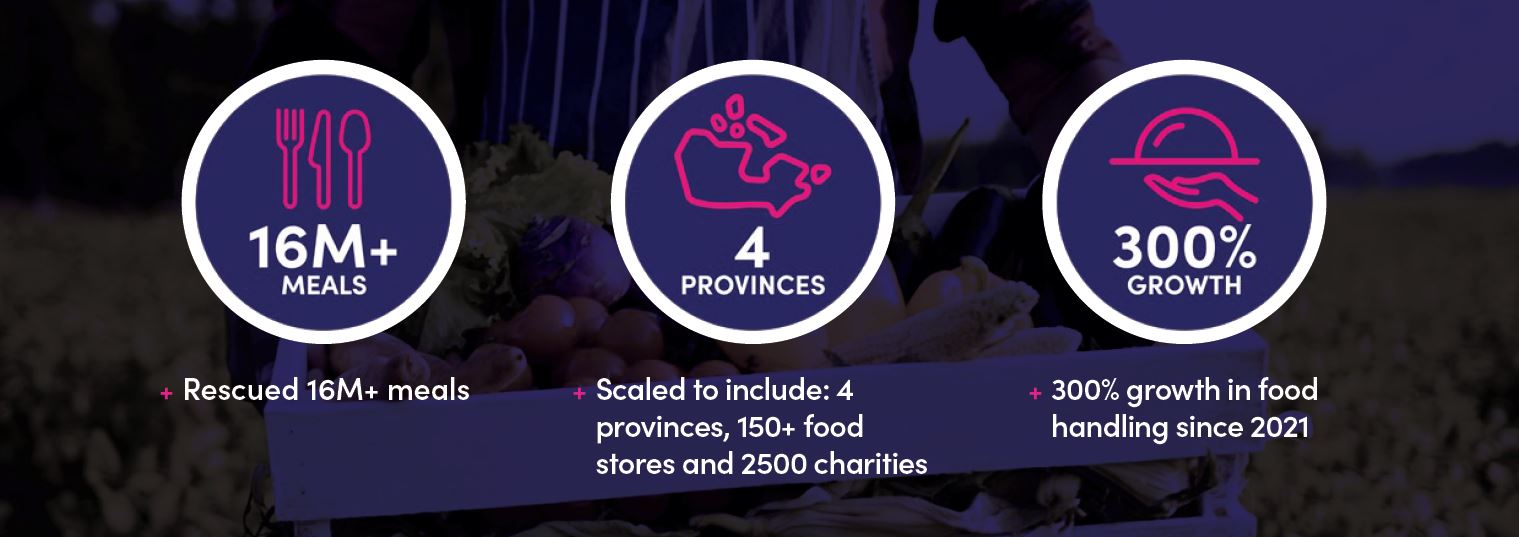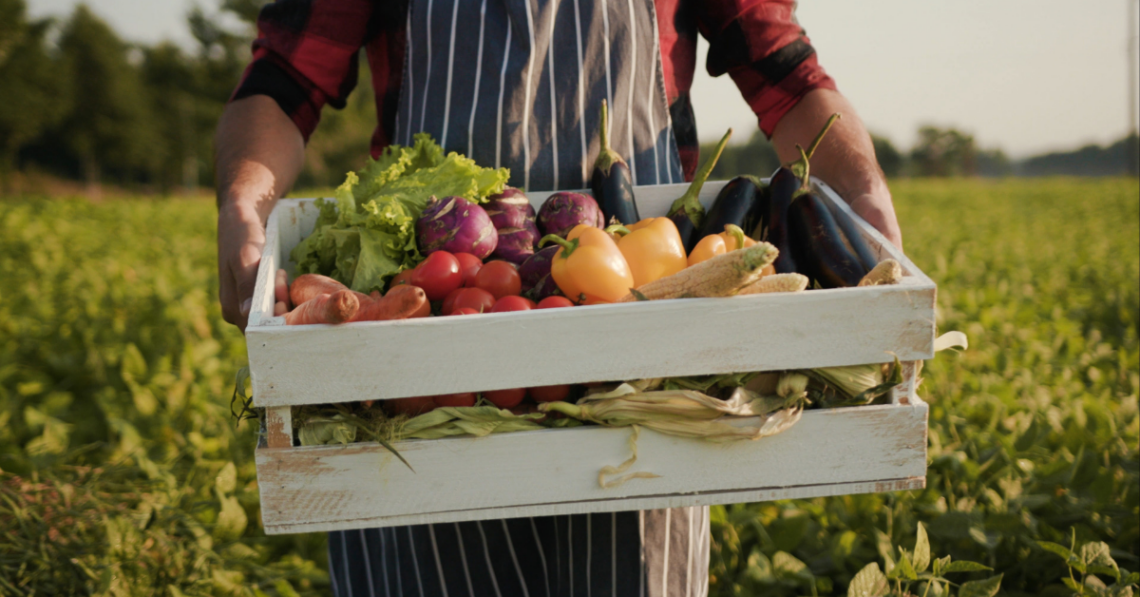FoodMesh is a Vancouver-based start-up that builds food recovery solutions to help organizations waste less and feed more. It builds scalable business solutions that divert and measure unsold food and ensure it is put to its highest end-use. The company’s work helps unite all elements of the food supply chain so that organizations with commercial surplus food can quickly and easily divert it to organizations that need it.
The Problem
Almost 60-percent of food produced in Canada is never eaten. 86-percent of this wasted food is discarded at points along the supply chain—in other words, before it even reaches the country’s homes. The financial value of this potentially rescuable food is a staggering $49.46 billion. Even worse, it could have been used to feed the hungry and food insecure, groups whose numbers have swelled as a result of the pandemic.
The Emergency Food Distribution Network Solution
The Emergency Food Distribution Network solution, led by FoodMesh, is Canada’s response to this troubling trend. It is powered by a platform that matches surplus food to organizations that need it most. It also enables users to measure and track the impact of their activity. This project brings together non- profits such as the United Way Lower Mainland, Vancity EnviroFund, National Zero Waste Council and Vancouver Coastal Health; private-sector food producers and suppliers such as Daiya Foods, Overwaitea Food Group and Buy Low Food Group; government municipalities such as Metro Vancouver, City of Richmond and Fraser Valley Regional District; and business leaders such as Traction on Demand and Salesforce.
Over the span of the pandemic, the Emergency Food Distribution Network has built and now services Canada’s largest online ecosystem of food suppliers, charities and farmers. As members of the network, food producers and manufacturers have a reliable outlet to sell or distribute unsold products that they would have destroyed otherwise. Retailers have a viable commercial service provider to manage their food donation programs consistently and cost-effectively. Charities have centralized and predictable access to donated food and heavily discounted food products. Hobby farmers have regular and scheduled access to free perishables to use as farm feed. All these groups have a streamlined way to track their work and evaluate the effect it is having on lowering food insecurity and on the environment. The ultimate beneficiary is hungry and food insecure people.
“Through the Supercluster program we have put together a unique consortium of tech, non profit and industry participants. We are currently repurposing our software to offer an emergency response network to build Canada’s largest food recovery network. Thanks to the Supercluster and the support they have provided, our goal is now to quadruple our impact from 300,000 up to 1.5 million meals each month.”
– Jessica Regan, CEO and Co-Founder, FoodMesh
Measurable Results

Since FoodMesh started its work, the company has helped organizations rescue the equivalent of more than 16 million meals. The amount of food handled via the network has grown 300 percent so far in 2021, with the network now encompassing 150 food stores and more than 2,500 charities and farmers in four provinces. On top of all that, it has created 11 direct and more than 25 indirect jobs.
Canada’s Digital Technology Supercluster is an original co-investor in this partnership, helping FoodMesh to accelerate the scaling of its online food recovery platform to be Canada’s largest online ecosystem of food suppliers, charities and farmers. In addition to industry-led co- investment, the Supercluster’s unique innovation model also provided accessibility to the collaborative technology partners and customers that FoodMesh required to achieve its goal of 1.5 million meals each month.
